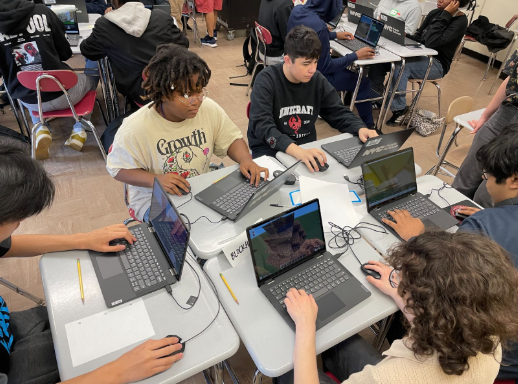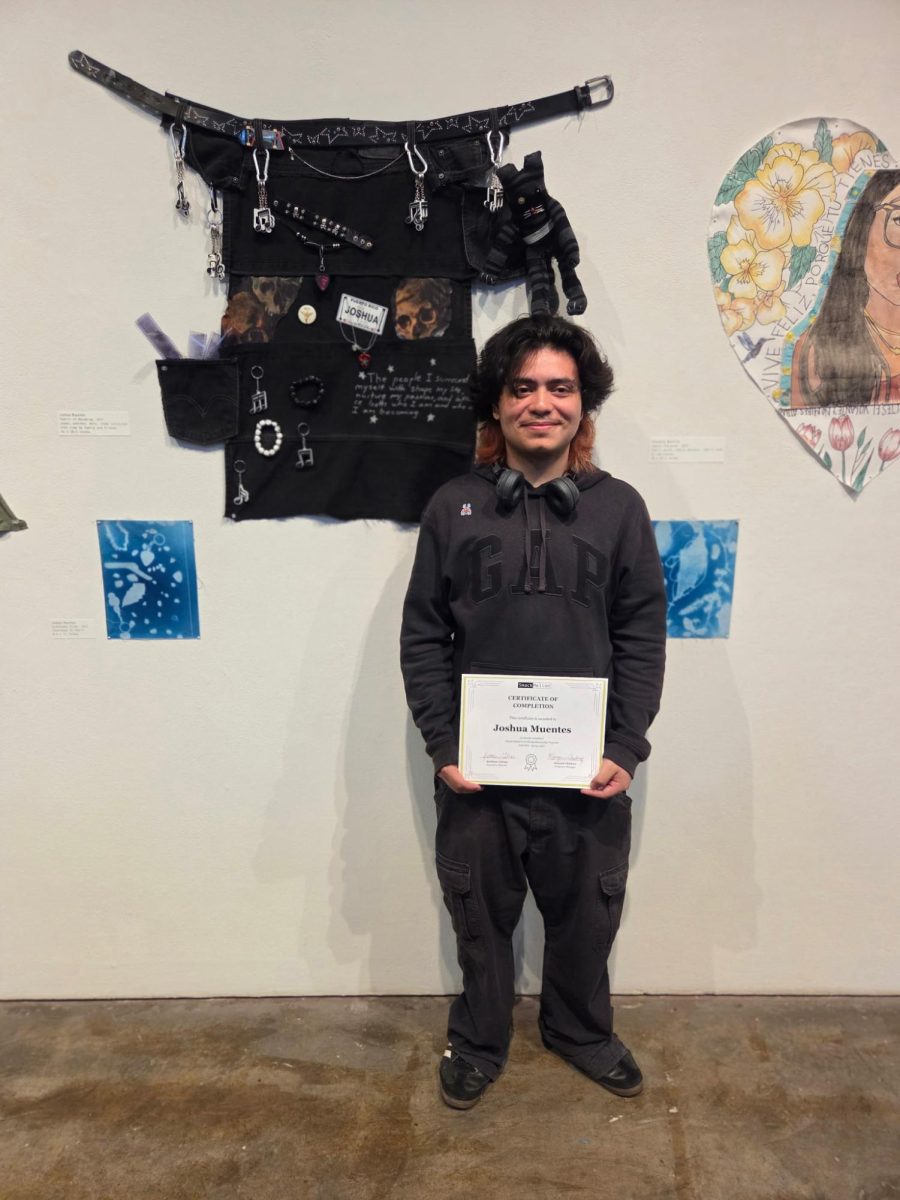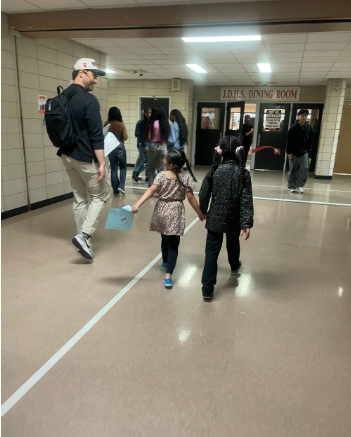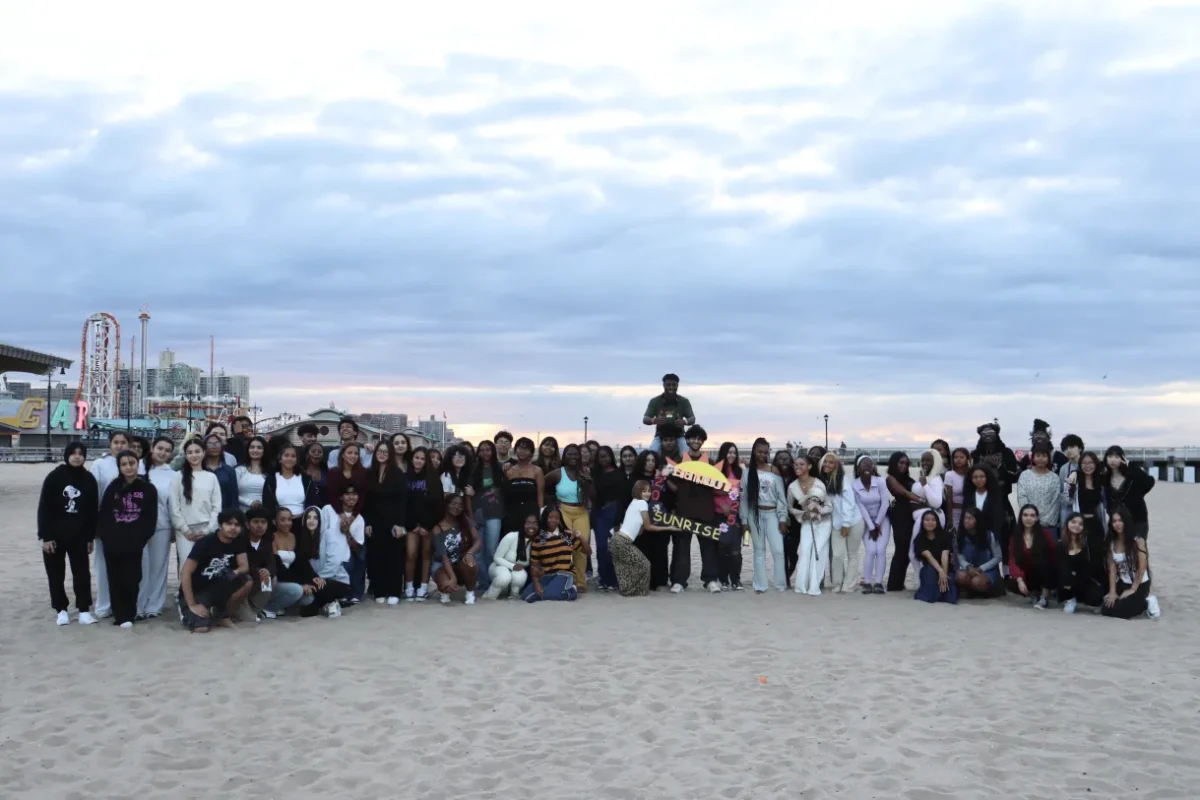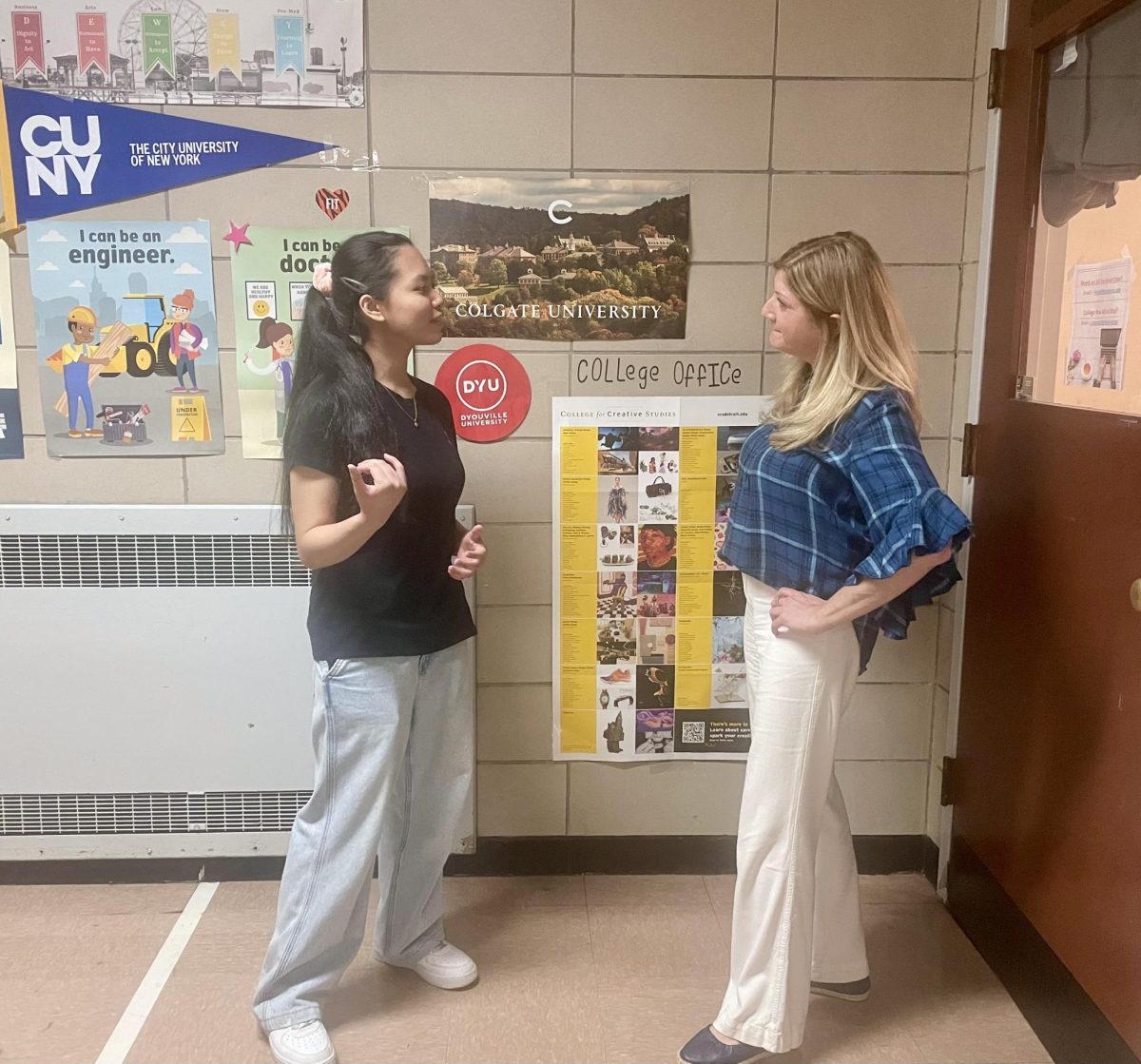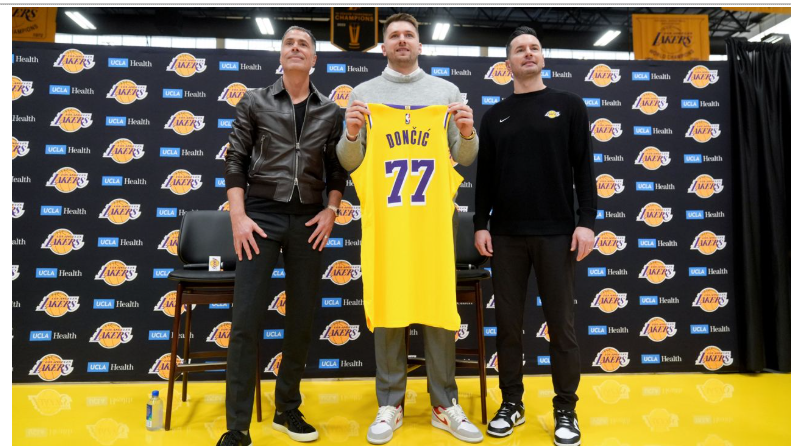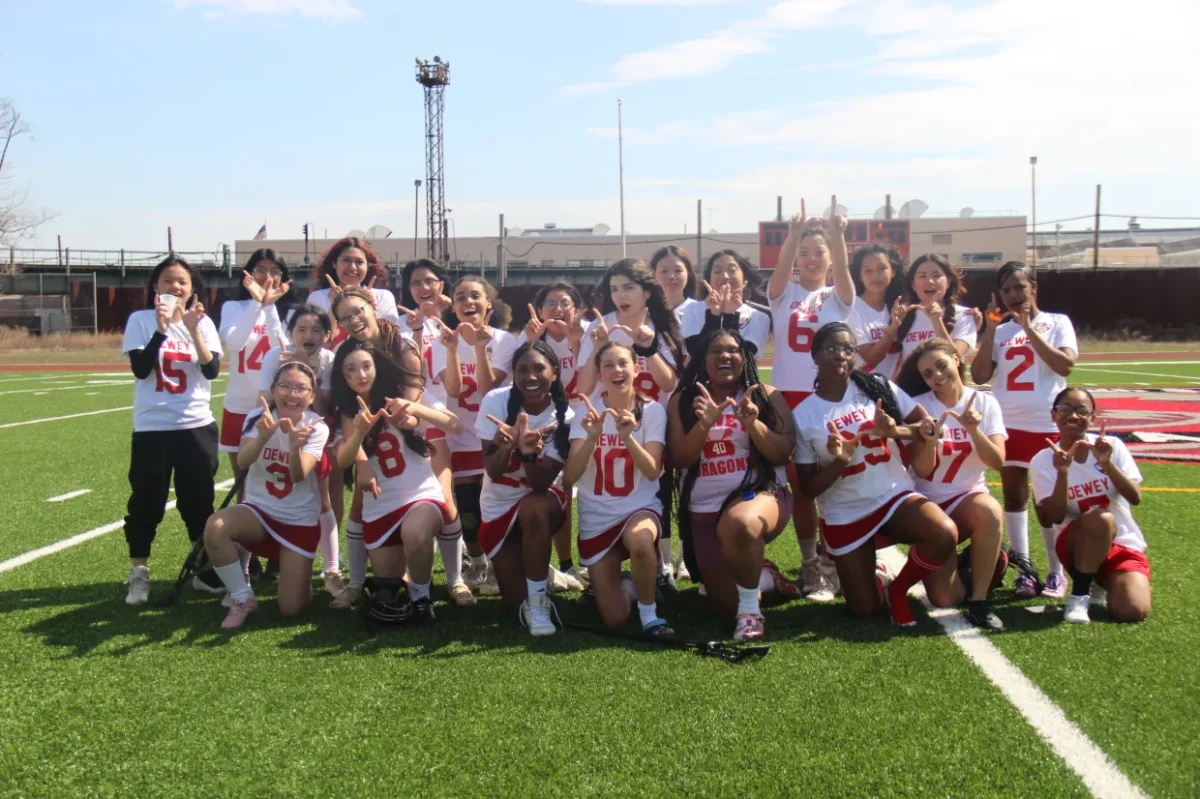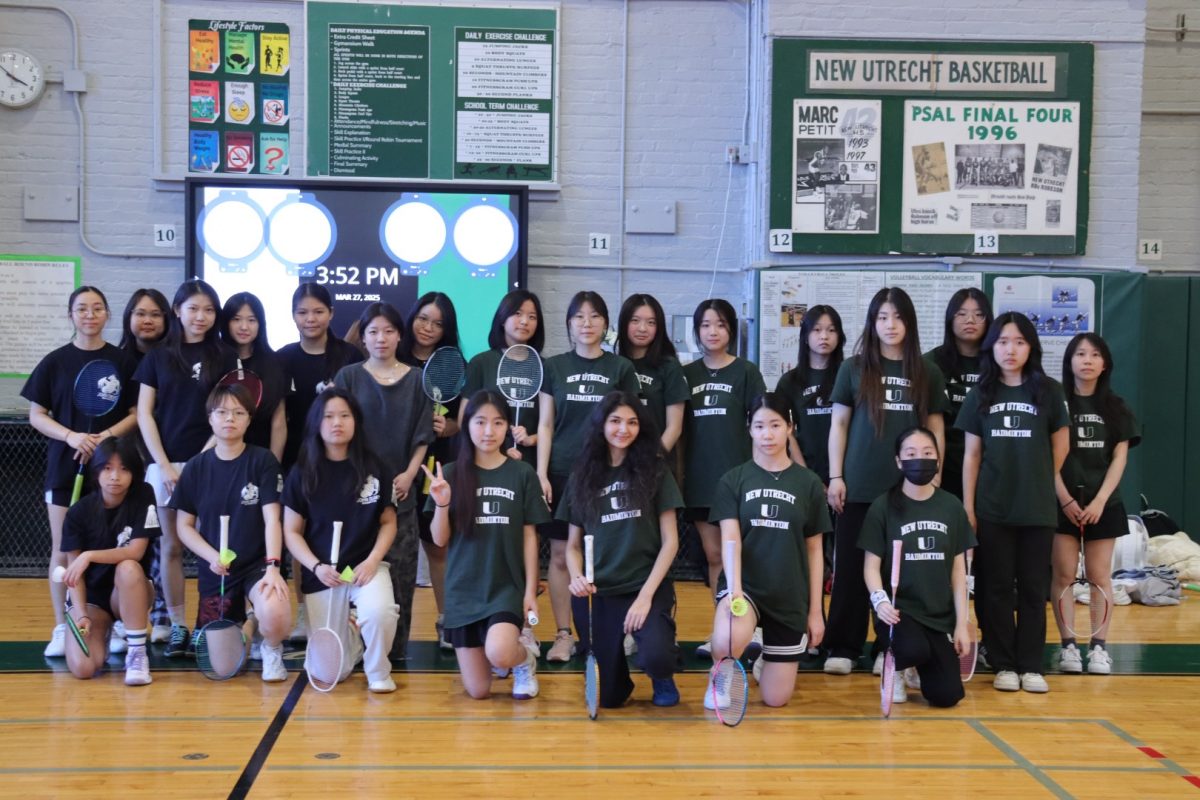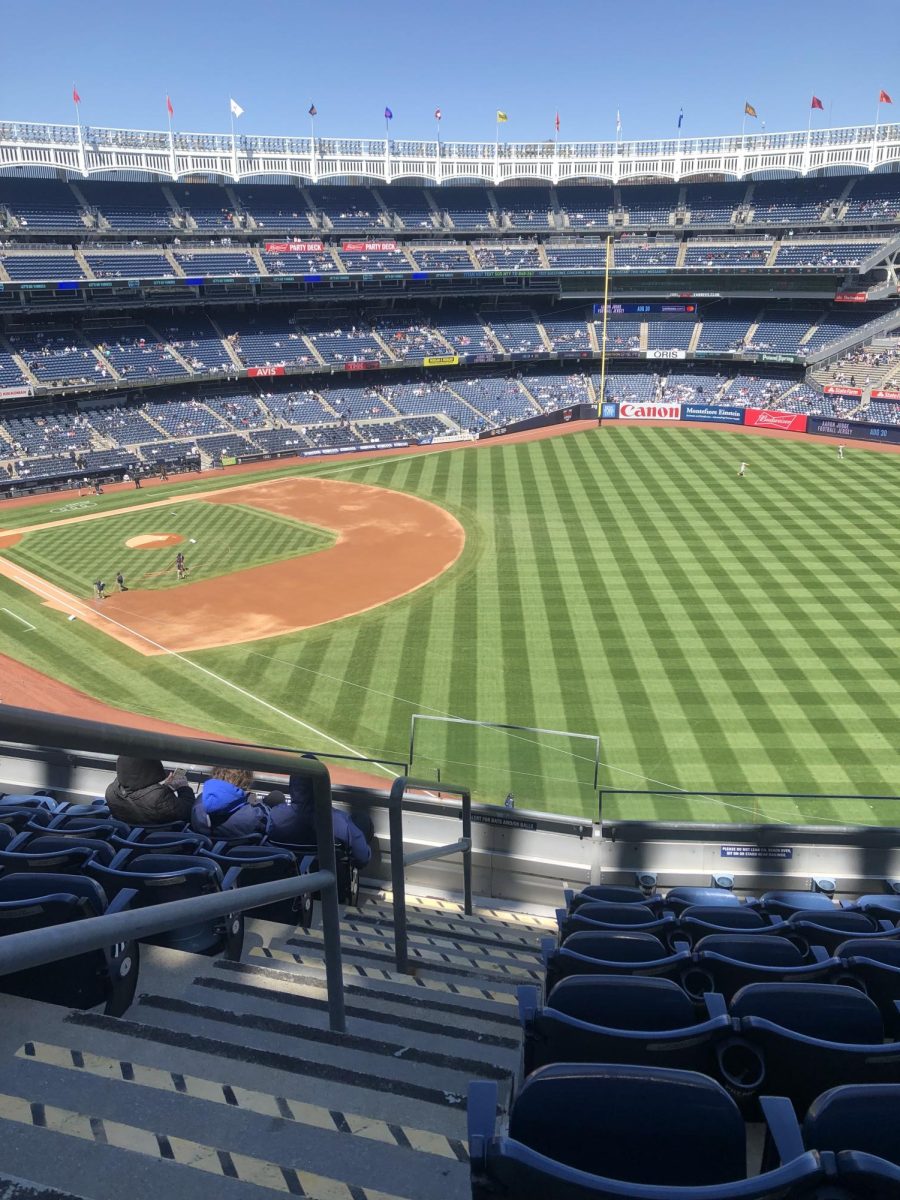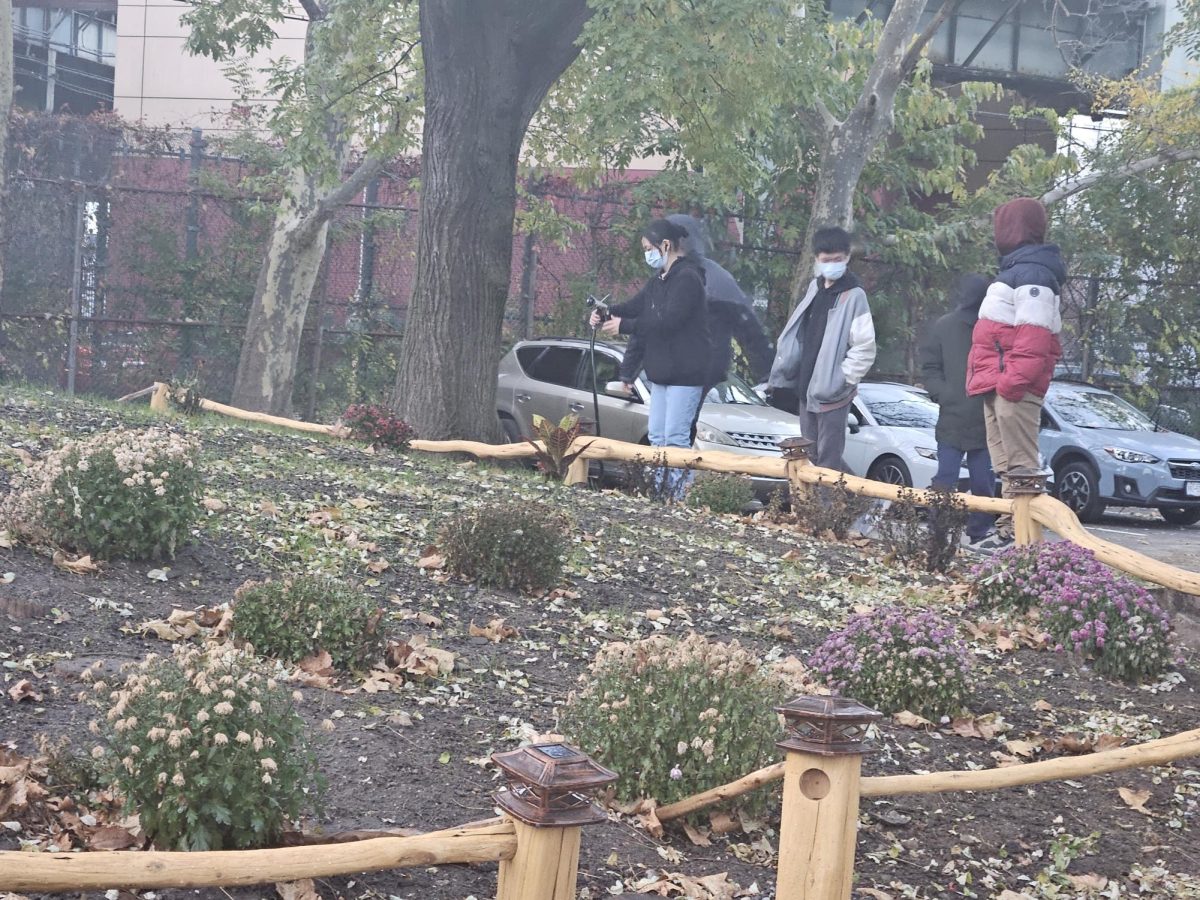What times have the idea of recycling crossed your mind? If not often, what are your thoughts on recycling at your school? At the Gardening Club, Students compost with food scraps, grow vegetables, sell them to staff at a low price, and even earn what they grew for free just by helping!
Though it’s more of an extracurricular than community service, it will sound good for a college resume in a horticulture or ethnobotany major. Mr. Moody, the club’s advisor, can be mostly found in the library at the office. You can even find him at the Gardening Club on Tuesdays at 2 pm in room 346 to learn more about what the club offers.
“We have a garden outside near the track, an organization is helping us complete the garden by creating picnic benches with shading light all around. I think students are going to have a lot of opportunities to volunteer there,” adds Mr. Moody. “We also compost all food scraps at Dewey.¨
The practice of composting consists of the students adding grounds and mixing them in compost containers which takes 15-30 minutes. It is a pretty quick process when there are many people. Students can save money by producing this free, high-quality soil. Compost reduces the use of fertilizer and pesticides, builds healthier soil, prevents soil erosion, conserves water, and improves plant growth in gardens and yards.
The practice is also used after the school’s yearly pumpkin painting contest. Some pumpkins would be left behind at school and they would end up rotting. Rather than throwing them away, the club also puts the pumpkin remains into compost.
Recently, gardening students collaborated with Bette Midler’s New York Restoration Project (NYRP) to build a beautiful garden with 12 raised beds that will supply culinary, ACES, students, and staff with fresh produce right in the school’s backyard. The garden features a shade structure/rain harvest system that will allow the school students and staff to water the beds with rainwater.
NYRP is also going to work with students and staff to teach them about urban agriculture and how to make the garden thrive. They will plant garlic and then prepare the beds for the winter with a cover crop. These game-changing modifications and resources will improve the gardening students’ performance in agriculture and gardening at school!
There is one student who started composting food waste last year during her lunch period. Her name is Taryn Delouis, she wants to expand the project so students can volunteer with the food scraps during lunch periods.
“In the late spring, we plant beans, bush beans, tomatoes, basil, mint, mustard green, collard greens, and cabbage,” Taryn explains, “The cabbage did pretty well, it was our first time growing it. It turned out pretty small but edible.¨
The students do compost after school or during lunch period. After harvesting the vegetables they grow, they also sell them for $1, unlike some grocery stores where a small package of basil would cost $4.99.
“We have a mutual relationship with the Culinary Club,” adds Taryn. “The Gardening Club lends what they grow to the Culinary Club so they can cook, in return for food waste and scraps like eggshells.”
The collaboration between these two clubs is powerful, it pretty much explains why we have a lot of food festivals every year. The club would have a lot of herbs to be harvested and given away before the winter break starts. The staff who manage plants and agriculture at the campus also rely on the compost made by the students, like Mr. Kanyuk from the Peace Garden Club.
Besides composting, recycling materials can be also important for the future both outside and inside the school. According to the U.S. Recycling System, recycling helps the environmental, economic, and community aspects of people’s lives.
For the environment, it reduces the amount of waste sent away, conserves natural resources, prevents pollution, and reduces greenhouse gases by reducing the need to process raw materials. For the economy, it increases economic security by making use of domestic sources of materials and saving energy. As for communities, recycling supports American manufacturing, conserving valuable resources and helping create more jobs in the recycling and manufacturing industries. To know some basics, here are the tips you can do at home and school when recycling:
Learn to compost at home with food scraps, yard trimmings, and other organic wastes. Adding the compost you make to soil increases water retention, decreases erosion, and keeps organic materials out of landfills.
If you have a lawn, make sure the cutting height of your lawnmower during the hot summer months keeps grass roots shaded and cooler, reducing weed growth, browning, and the need for watering. When you mow, leave grass clippings on your lawn as they will return nutrients to the soil.
Donate healthy plants that you want to replace to community gardens, parks, and schools. If you have a wood-burning fireplace, save your ashes instead of throwing them away. Once cooled, wood ashes can be mixed into your compost heap and provide nutrients to your garden.
Turn off or unplug lights during the day. Doing so will save energy and help your lights last longer. Prevent waste by keeping rechargeable batteries for your flashlights. If you do use disposable batteries, buy ones with low mercury content.
Have a yard sale to find homes for belongings that you no longer need. When moving, use old newspapers to wrap fragile materials. Use moving boxes with the highest content of recycled paper and bubble wrap containing recycled plastic. Many organizations have places where you can drop off empty boxes for others to reuse. Look for household hazardous waste collection to know what to reduce use of.
Practicing the “3 R’s” of waste reduction (reduce, reuse, and recycle) can help students, parents, and teachers all make a difference in reducing waste at school. Some individuals may still not be familiar with it.
Think green before you shop. Before starting the new school year, look through last year’s list of materials. Many items can be reused or recycled. Purchase and use school supplies made from recycled products. Look for other ways that you can reduce the amount of packing and keep track of items and make an effort to put your things in a safe place every day. This will not only reduce waste but save you money in the long run.
If you bring your lunch to school, package it in reusable containers. Carry food in reusable plastic or cloth bags. For more tips, read EPA’s Pack a Waste Free Lunch guide. When buying lunch, grab only what you need. Remember to recycle your cans and bottles after you finish eating. If you have a sense of creativity you want to use to help, come to the school’s gardening club to suggest helping them make posters that tell students what can be composted or recycled in the cafeteria.
Donate your old computers and tablets to a school, as many will be able to make good use of your old machine. Before replacing a computer that no longer fits your needs, consider enhancing the computer’s capacity by upgrading its memory. Donating used electronics for reuse extends the lives of valuable products and even keeps them out of the waste stream for a longer period. Learn where to donate your devices and be smart with your smartphone! It contains precious raw materials. Learn how to keep your information and our environment safe when donating your old device.
Learn what you can do to keep your holidays as green as possible. Think before shopping for the holiday sales. Bring your reusable cloth bag for carrying your purchases, and try to buy items with minimal packaging. Wrap gifts in recycled or reused wrapping paper, and give gifts that don’t require much packaging like tickets or gift cards.
Package homemade goodies in reusable containers as gifts. When gifting flowers, consider buying long-lasting silk flowers, potted plants, live bushes, shrubs, or trees that can be planted in the spring as gifts.
There are many ways to create community events for recycling! On Earth Day, April 22, you can show your commitment to cleaning an environment by volunteering for a cleanup in your community. You may organize a recycling drive in your neighborhood or at school. You can collect bottles, glass, plastic, newspapers, or books and take them to your local recycling center or a charity in need.
Overall, practicing recycling benefits a lot especially when bringing communities together to contribute to the environment. It’s fun to hold a “donation picnic” at your local park or recycling center where participants can eat, talk, and bring their old toys, clothes, books, furniture, and other items for charitable organizations.

